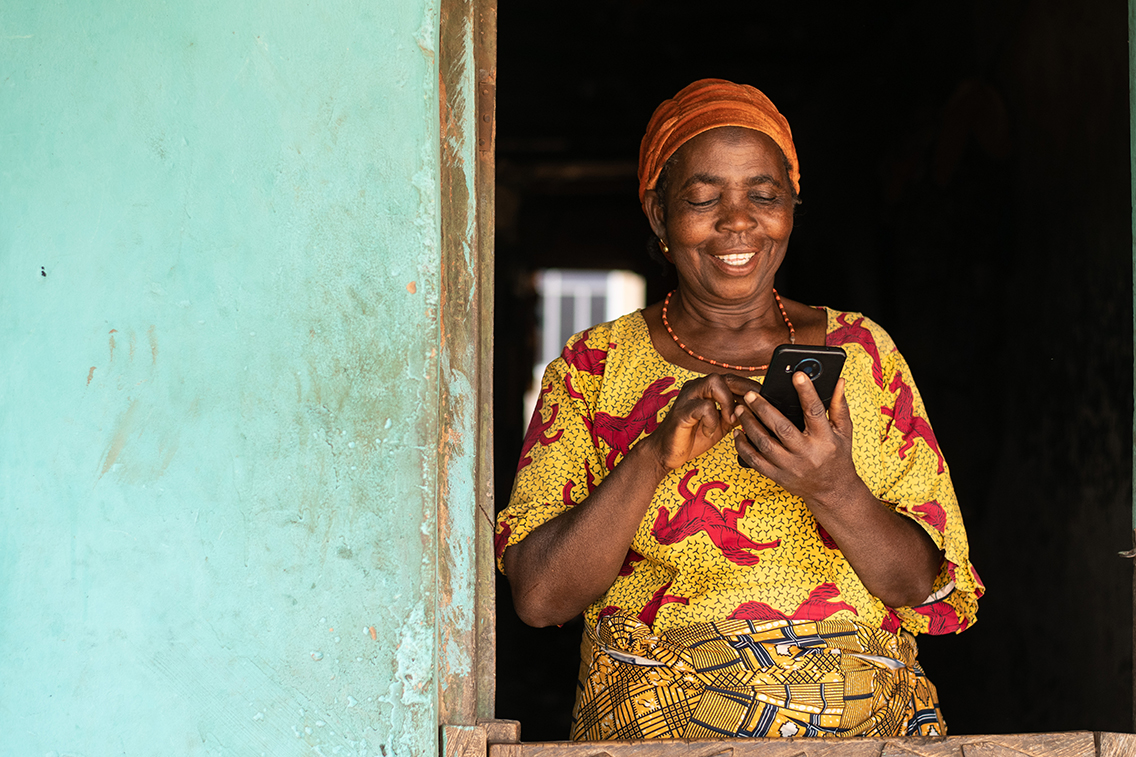Mobile money remains one of Africa’s most celebrated technological achievements, a home-grown innovation that transformed financial behaviour, expanded inclusion and created new business models. In many countries it is now so deeply embedded that it rivals cash for everyday transactions. Journalist Yinka Ibukun, speaking at the Bloomberg Africa Business Summit 2025 in Johannesburg, recalled trying to book a flight from Accra to Lagos and being offered only two payment options: cash or mobile money. Few technologies have reached such a level of penetration across the continent.
As digital adoption accelerates and consumer expectations shift, the question for policymakers, investors and businesses is what comes next. A panel of technology leaders at the Bloomberg Africa Business Summit explored this theme, offering insights into the innovations that could define Africa’s next decade and how they might be tailored to its development priorities.
Africa’s digital momentum
Lexi, General Partner at Northken22, a venture fund backed by 35 global tech founders who each operate billion-dollar companies, argued that Africa’s greatest attraction lies not only in its young and expanding population but in its market inefficiencies. Fragmented systems and untapped sectors, she said, represent fertile ground for innovation. As digital infrastructure improves, longstanding frictions in payments, identity, logistics and verification are becoming solvable at scale. Investors are increasingly motivated by the possibility of building Africa’s next generation of globally relevant companies.
She highlighted three areas gaining particular traction.
The first is digital identity. Following the continent’s early leadership in digital payments, digital identity systems are emerging as the next essential layer of infrastructure. They enable access to credit, strengthen verification processes and provide the backbone for more complex digital services.
The second is the rapidly expanding creative and media economy. From music streaming to gaming, African creators are using digital platforms to reach audiences at home and abroad, drawing new investor interest.
The third is the rising use of blockchain technologies and stablecoins. Stablecoins in particular offer a practical response to the challenges of cross-border payments and fragmented financial systems.
AI for development
Representing OpenAI, Emmanuel stressed that delivering the organisation’s mission to ensure artificial intelligence benefits all of humanity requires a deliberate strategy for serving African markets. To support this goal, the company has launched OpenAI Academy in partnership with the University of Lagos. The initiative offers an accessible platform for learning about generative AI and emerging digital tools, with content shaped to African contexts. Its strong uptake reflects a clear demand for high-quality technical training.
OpenAI is also forming partnerships across sectors. Work with Digital Green aims to apply AI to improving agricultural productivity, while collaboration with Jacaranda Health focuses on enhancing maternal healthcare. These initiatives show how AI can strengthen essential services across the continent.
To broaden access, OpenAI has introduced ChatGPT Go, a lower-cost subscription priced at around 149 rand in South Africa and 7,000 naira in Lagos. The model is designed to align with African purchasing power and support the continent’s digital inclusion objectives.
A new backbone for African financial flows
Although global attention often centres on AI, Chris, a digital payments specialist, argued that stablecoins represent the most immediate financial shift underway in Africa. Last year, stablecoins processed nearly 17 trillion dollars’ worth of transactions, surpassing Visa and Mastercard combined. Africa is one of the fastest-growing markets, with six of the top 20 adopting countries located on the continent.
The appeal is simple. The United States dollar dominates international trade, accounting for around 90 per cent of invoice settlements. Yet using dollars across borders is costly and slow, reliant on multiple intermediaries and legacy systems that do not suit African markets. Stablecoins streamline these processes, allowing near-instant, low-cost transfers of digital dollars. For traders, small businesses and remittance users, the advantages are substantial.
Chris compared this shift to the rise of online banking. A bank that dismissed digital services in 2005 would struggle to survive today. Institutions that ignore stablecoins now, he suggested, may face a similar risk.
Shaping the next digital transition
A consistent message throughout the discussion was the importance of adaptation. Africa’s mobile money revolution succeeded because it matched the continent’s realities, from cash-heavy economies to limited banking infrastructure. The new wave of technologies, including AI, blockchain and digital identity systems, holds significant promise, but their success will depend on how effectively they are shaped to address African constraints and build on African strengths.
Structural challenges such as identity gaps or fragmented logistics should not be seen as barriers but as catalysts for innovation. The coming decade presents an opportunity for Africa to influence global standards in digital identity, financial innovation and AI-enabled public services.
Mobile money proved that the continent can leapfrog traditional systems. The next wave, from stablecoins to locally relevant AI models, could firmly establish Africa as a global leader in adaptive and transformative technologies. As investors, innovators and governments converge around these emerging tools, Africa has the opportunity not only to adopt the technologies of the future but to shape them.
Want to continue reading? Subscribe today.
You've read all your free articles for this month! Subscribe now to enjoy full access to our content.
Digital Monthly
£8.00 / month
Receive full unlimited access to our articles, opinions, podcasts and more.
Digital Yearly
£70.00 / year
Our best value offer - save £26 and gain access to all of our digital content for an entire year!

 Sign in with Google
Sign in with Google 



